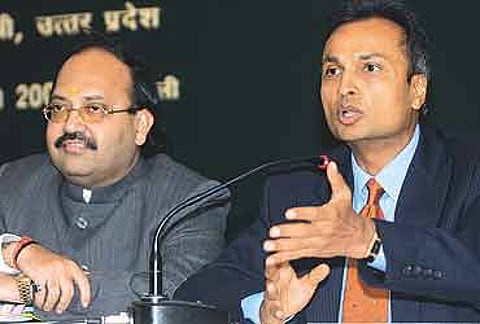So far, investigations have revealed that Bhupender Singh had approached a Reliance employee identified as Kuldeep. Police officials say Kuldeep helped Bhupender forge the letters by supplying him photocopies of earlier letters that had been sent by the government for tapping phones. Bhupender, say officials, had used similar methods to tap other phones in the past. He was also working as a recovery agent for a well-established bank and was being investigated for the methods he used for 'collecting'. What has raised eyebrows is the vast sums of money that was paid to Bhupender for his surveillance. It is reported that Bhupender earned all of Rs 5 lakh per week and had amassed a little over Rs 50 lakh by now. "This indicates that there was some kind of institutional backing for the whole exercise," a senior police official told Outlook. Though, who paid the monies is not yet clear. For now, both Bhupender and Kuldeep have been remanded to police custody.
While the investigation continues, the SP plans to use this issue to whip up a political debate. However, sources close to Mulayam and Amar Singh say they have been disappointed as the controversy failed to generate the political outrage they had expected. But the whole episode has certainly generated a debate on the right of privacy for politicians. Years ago, the Supreme Court had issued specific guidelines for tapping phones. This latest phone-tapping incident involving Amar Singh is testimony to the fact that telecom authorities and private phone companies are consistently failing to follow those guidelines. Perhaps, some good may come out of this curious case after all, and telephone operators will become more alert.
Speak No Evil
Who would want to eavesdrop on Amar Singh? But everyone's curious what's recorded, including himself. <a > Updates</a>

Published At:
Tags